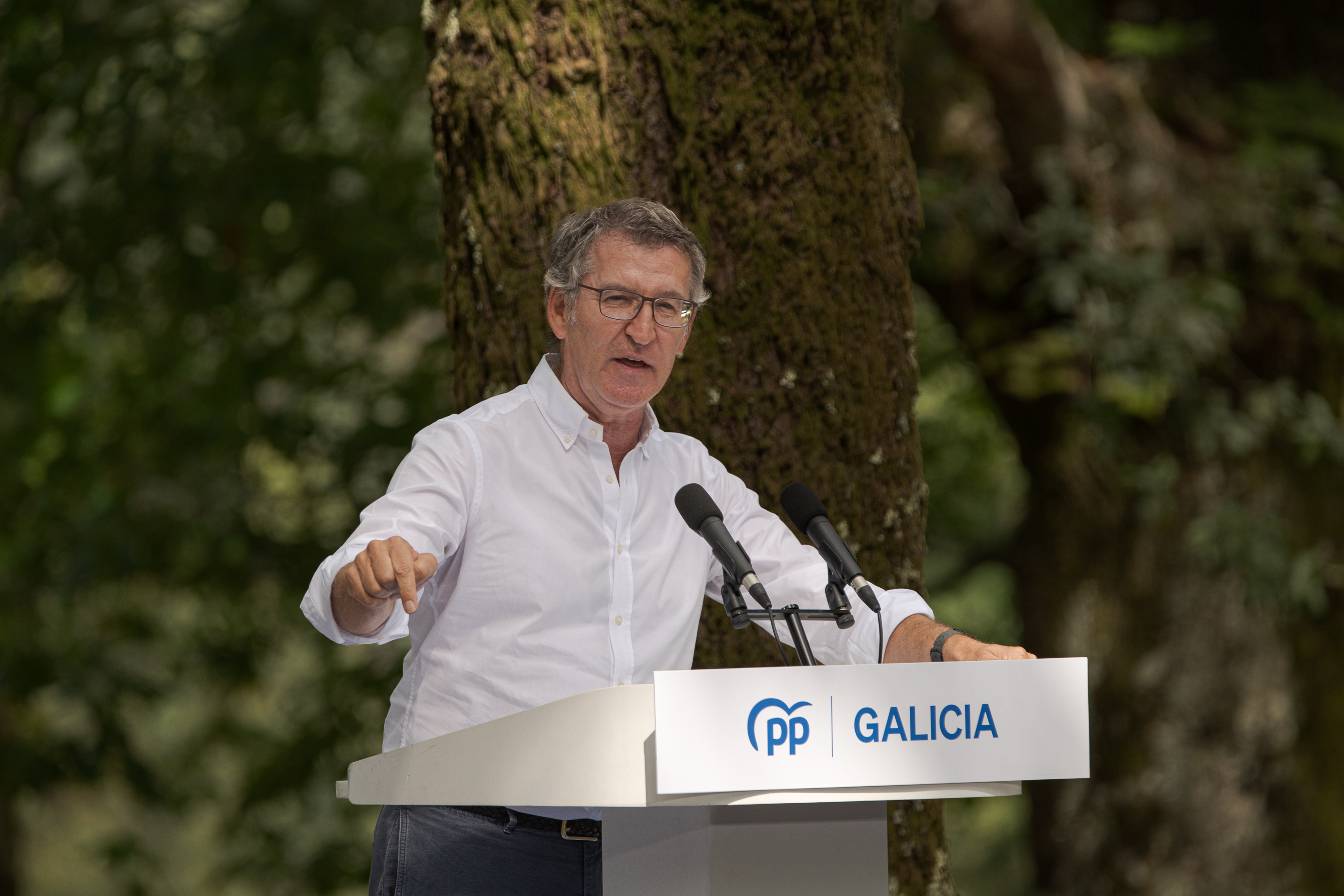The plan of measures for “democratic regeneration” that Pedro Sánchez promised after his five days of reflection, during which he was on the verge of leaving his post as Prime Minister, will finally be approved this Tuesday during the Council of Ministers.
This was announced yesterday by the head of the Executive himself at the interparliamentary meeting of the socialists held in Congress, where he did not offer further details on the content of the same. “It is a plan that will help us provide more transparency, more plurality and greater guarantees to the Cortes Generales, the Senate, the Congress and our information ecosystem,” he said without further specification.
After Judge Peinado admitted the complaint filed by Manos Limpias against his wife, Begoña Gómez, Sánchez published a letter on social media in April in which he asked for time to consider whether or not he should continue in office. “I need to stop and reflect. I urgently need to answer the question of whether it is worth it, despite the mud that the right and the far right are trying to turn politics into,” he said in that letter.
After deciding to stay, the President of the Government went on the offensive by assuring that he would work “tirelessly” for the “pending regeneration of our democracy and for the consolidation of rights and freedoms.” And this “assumed responsibility” will finally materialize this Tuesday in a plan that the Executive has been negotiating with other parliamentary groups (with the exception of Vox) in different meetings headed by the Minister of Justice, Félix Bolaños, and the Minister of Culture, Ernest Urtasun.
On July 17, during a speech in Congress, Sánchez already publicly explained his proposals for this plan. Proposals that, however, were formulated as mere suggestions so that the other parties could then modify or contribute to them in said meetings. The President of the Government is aware that this reform affects fundamental rights such as freedom of the press or freedom of expression.which is why it is essential that the approved text be the result of a consensus and the sum of opinions of the different groups, in addition to including the media or journalists’ associations in the dialogue.
Bolaños and Urtasun, meeting with Aitor Esteban (PNV)
In that appearance in the Lower House, just two months ago, Sánchez assured that All news outlets should report on public funds received from advertisingand called for these funds to be allocated according to “public, proportionate and non-discriminatory criteria.” In addition, it proposed requiring media outlets to make public their ownership, their audience data and details of how they are financed.
With these measures, Sánchez’s objective is to limit the funding that administrations can allocate to the media so that there is no media that has “more public funders than readers”, as well as mechanisms to defend pluralism and competition to “avoid the concentration of media in a few hands”.
Regarding the fake newsSánchez proposed that it should be the National Commission of Markets and Competition (CNMC) and the press sector itself through self-regulation, which should exercise control over the repeated publication from a media outlet of news that could be considered false. That is, The Government would not have the power to sanction or close down a specific media outlet for spreading lies or falsehoods.
Outside of the media, Sánchez also expressed his interest in “strengthening the rights to honour and rectification of citizens”. In this way, Sánchez pointed to “public reparation” in the case of instructions with media repercussions that do not culminate in the opening of an oral trial, or leaving possible insults to the Crown or offences to religious sentiment unpunished.
He did not say anything at the time about a repeal of the gag law, which Sumar sold as a done deal and which the PSOE reduced to the modification of a point referring to the dissemination of police images, which was already declared unconstitutional by the Constitutional Court.
And with regard to the parties, Sánchez proposed a reform of the regulations of Congress and the Senate to toughen the sanctions for those deputies and senators who do not present their declaration of assets and activities, or who do so with false or incomplete information. In addition, he wanted to change the Electoral Law to establish the obligation of electoral debates between candidates in the media or for all published surveys to incorporate microdata and the methodology for estimating results.
The PP has already announced that it will not support the plan: “No way”

The leader of the PP, Alberto Núñez Feijóo.
It remains to be seen how many of these proposals will ultimately be included in the plan and which can be incorporated as a result of open dialogue with the other parliamentary groups. In any case, The Government made it clear in the summer that its intention was to gradually phase in the measures, without the entire package being applied immediately.
Despite wanting to reach the greatest possible consensus, PP and Vox have already said that they will vote against these measures, considering that they threaten press freedom. “No way,” they say. The HuffPost from Genoa in the face of the possibility of an affirmative vote from his parliamentary group.
The PP’s position clashes with the one they themselves showed in Europe when they voted in favour of the European Regulation on Freedom of the Media. According to Sánchez, a good part of their proposals are included in this same document, which is mandatory for Spain from 8 August 2025. “It would be incomprehensible if in Strasbourg they approve some things and then here, in the Congress of Deputies, they vote against those same issues,” Sánchez said this Monday with a smile in the face of the PP’s foreseeable refusal to reach an agreement on this plan.
Source: www.huffingtonpost.es


